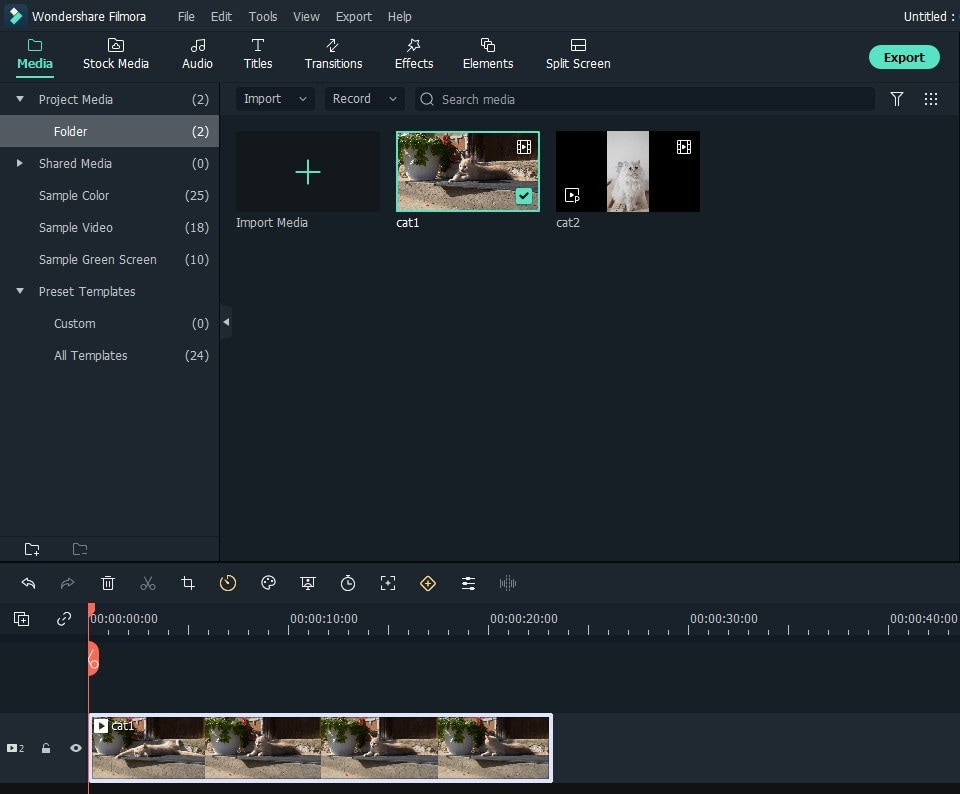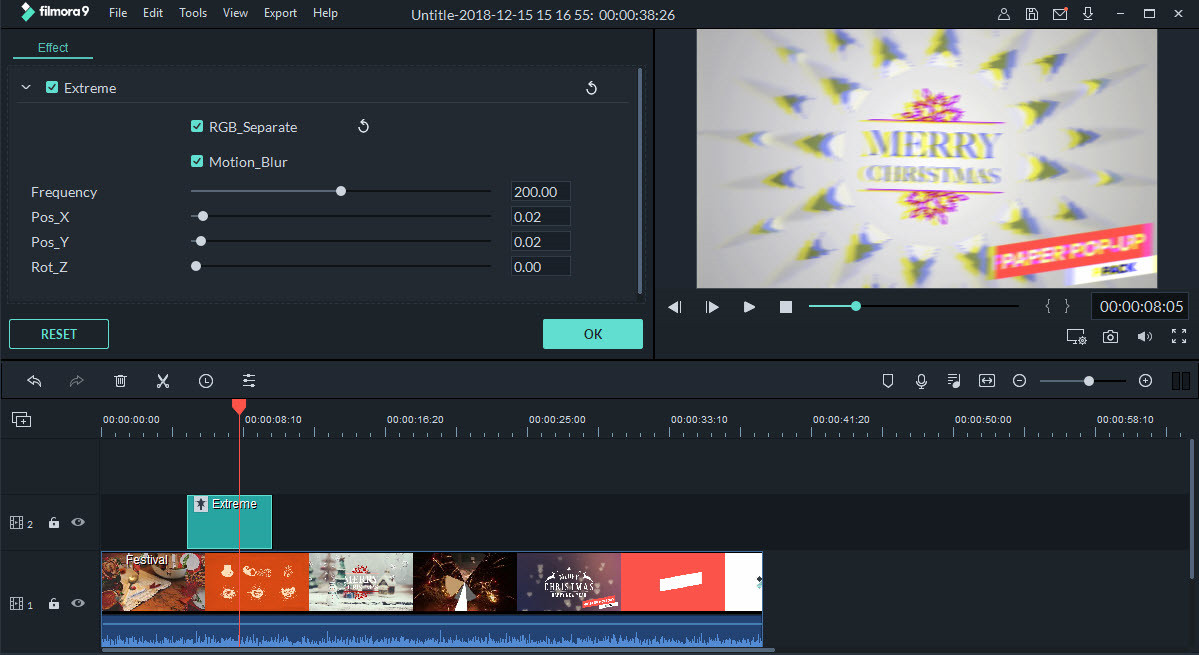:max_bytes(150000):strip_icc()/how-to-fix-a-400-bad-request-error-2617988-70ec8d87146e462cae353c32d0dcb64a.png)
In 2024, Lilliputian Storyboard Outline

Lilliputian Storyboard Outline
Short films are becoming more and more popular with seasoned filmmakers, breakout filmmakers, and students alike. Search on YouTube and you’ll find thousands, if not hundreds of thousands, of short film examples. But what makes for a good short film script ? How can you make it stand out from the crowd?
Today, we look at seven important aspects of a great short film script and how you can improve yours. Can you put these into practice when writing your next script?
Part 1. 7 tips for improving short film scripts
There’s never been a better time to learn the craft of writing short film scripts. Interest and access to creating and viewing short films and series episodes have exploded worldwide, both on television and on the web. A great short film can also open doors for you into the film industry, as Barry Jenkins discovered with his great screenplay for the short film My Josephine, which I wrote in my screenwriting class at Florida State University.
But writing a successful short script is not easy. It requires the craft and concentration of a medieval artist carving scenes into walnut. So here are seven tips for creating a short script.
1. Storyline
This is always, always, the number one problem for my screenwriting students. They come up with big story ideas, often feature screenplay ideas, but quickly find that their idea doesn’t fit or work in short form. The result is what I call “narrative cramming.” The story can’t breathe. So, you need an idea that is small, specific, and significant to your main character.
My Josephine was inspired by “an image of two people’s legs hanging over a table in my head,” according to Barry Jenkins. I saw them, young and intimate, working the night shift in a 24-hour laundry.” Even with this small, simple, and significant image as a starting point for a short script, Barry struggled to find a story in six pages that he could tell well. He attempted to include the murder in the Laundromat at one point, which resulted in, yes, narrative cramming. Barry rewrote the script a year later and “made it as simple as I could as a writer,” he told me. I was so moved by his transcript that I only wrote three words in the script – “Beautiful and gentle”. Just like his beautiful film.
2. Characterization
Writing compelling short scripts requires what Thornton Wilder called “shortcuts to the imagination.” And knowing what your main character wants in your story is the most important shortcut to understanding and discovering who your main character is. So, give your main character a desire or yearning for something that matters deeply to her. Then let your story flow from your character’s efforts to achieve that wish. The best stories, short or long, are about the human heart.
3. An independent story
It’s also a useful way to think of the script as an energy system, as William Gibson brilliantly says in Shakespeare’s play. An energy system begins with an Inciting Incident - a significant event/discovery that unleashes the energy system - and ends with a Climax - the moment when the story’s outcome is known, and the energy system ends. Given the limited number of pages available in your short script, it’s essential that your inciting incident appears on the first page.

4. Conflict
Conflict is every point of opposition between two forces (physical or intellectual), as well as the consequences of this opposition - all in full view of what can be seen on the screen, whether through cinema, television, or devices.
Screenwriters can’t convey conflict with background and inner thoughts or explanations of inner thoughts—that’s literary conflict.
Instead, screenwriters are tasked with presenting the conflict on screen through scene descriptions, character actions and reactions, and dialogue. While the dialogue is something we hear and could certainly—in smaller print—be used to replace literary prose to describe background information, backstory, and inner thoughts, the best screenplays and movies show rather than tell.

5. Turning Point
It’s helpful to think of a screenplay as a pattern of significant human change that you create at specific moments of change—the discoveries and decisions your main character makes that change the character and move the story forward. What your character wants and is trying to achieve in your short is the surface action – the events we see on screen. And how these events forever change a character’s inner landscape is deep action—your character arc.
If you want to see a well-crafted surface and deep action/character arc in a fifteen-page script, read Chapter 17 “Killer Kart” in the book Making Short Scripts That Connect 5e, and screen the movie on the book’s website. It’s no surprise that the film is the most screened film ever made at the FSU Film School.
6. Sublimation
Scenes are the “church of drama”, as William Gibson also brilliantly says. So, it’s helpful to think of your scenes as the time and place where a significant moment of change will occur, throwing your script into the next scene and moving your story forward. That is your purpose when you write a scene, to dramatize the moment (or moments) of change. That’s what matters. I like to think of a scene as an oyster and a moment of change as a pearl. Then cut to your scenes as close to the moment of change as possible and exit as soon as possible.
I got it, really got it, as a young playwright when the Actors Theater of Louisville commissioned me to write a ten-minute play. And I did—in six scenes that I hit late and left early, each with a small but significant moment of change that moved the story into the next scene. “A tender and effortless glissando that gracefully stretches from moment to wistful moment,” as The Los Angeles Times put it in my all-time favorite review.
7. Ending
The end of a script is often more important than the 90 pages that preceded it. Because of the magnitude of its importance, many writers struggle to close their scripts with the right resolution. But don’t worry, we’ll show you everything you need to know about how to end a storyboard with examples of basic storyboard formats from Star Wars: The Force Awakens and The Big Short. We will discuss the technical aspects of writing THE END into scripts. By the end, you’ll have a good understanding of the formatting requirements for how to end the script.
Example Script Defining Above Tips

Part 2. How to edit your short film?
Have you ever stored various videos and photos on a memory card or on a computer? Why not create a movie to show them off? Once finish making a great movie, you can share it with others in a variety of ways including on YouTube, Facebook, and Instagram. Your followers will be amazed at the extraordinarily delightful works. In fact, making a movie using your own photos, videos and audio is easy.
Make a short film with Wondershare Filmora Easy Movie Maker.
Below, we will show you have to use this easy movie maker to create a video with Filmora in clicks.
1. Import your files and arrange the order
Open Wondershare Filmora, click the “Import” button, and use the navigation import panel to load media files. You can also directly drag and drop your media files into the program. Then, trim or cut the video clips in the timeline with options in the Toolbox

2. Making stunning short films with various Effects & Filters
After you’ve added your media files for editing and placed them on the Timeline, double-click the target file and adjust video quality by changing the Contrast, Saturation, Brightness, and Hue as you like. Then return to the “Effects” tab and pick the special effects you want to apply.
Select the ones you want to add by clicking “Transition” and dragging them between the video clips. Then, double-click to change the Time Duration, and then click “Apply to All” if you want all transition effects to be the same length.

To add text to the video, click the “Text” button, choose a text type, and drag the icon to the Text track. You can stretch the icon across the entire track to have the titles appear throughout the movie, or just over a portion of it. In the editing window, you can change the font, size, color, and effect.
- More features to discover can be found by clicking Extraordinary Features of Filmora.
3.Save the video in the format of your choice
When everything is done, hit the “Create” button, and you’ll see several options: save it as a video file, convert it for viewing on your mobile phone or tablet, directly upload to your YouTube or Facebook account and burn to DVD. Choose an output method as you like and click “Create”. After a few seconds, a folder with the newly reformatted video will open automatically.

Conclusion
Don’t be afraid to start writing your next (or first) short film! It might seem like a daunting task, but it’s well worth doing. I hope these tips will help you create a unique short film built from your own perspective that is well within your limits to have created. Nothing has the same feeling as seeing your words come to life on screen!
Free Download For Win 7 or later(64-bit)
Free Download For macOS 10.14 or later
2. Characterization
Writing compelling short scripts requires what Thornton Wilder called “shortcuts to the imagination.” And knowing what your main character wants in your story is the most important shortcut to understanding and discovering who your main character is. So, give your main character a desire or yearning for something that matters deeply to her. Then let your story flow from your character’s efforts to achieve that wish. The best stories, short or long, are about the human heart.
3. An independent story
It’s also a useful way to think of the script as an energy system, as William Gibson brilliantly says in Shakespeare’s play. An energy system begins with an Inciting Incident - a significant event/discovery that unleashes the energy system - and ends with a Climax - the moment when the story’s outcome is known, and the energy system ends. Given the limited number of pages available in your short script, it’s essential that your inciting incident appears on the first page.

4. Conflict
Conflict is every point of opposition between two forces (physical or intellectual), as well as the consequences of this opposition - all in full view of what can be seen on the screen, whether through cinema, television, or devices.
Screenwriters can’t convey conflict with background and inner thoughts or explanations of inner thoughts—that’s literary conflict.
Instead, screenwriters are tasked with presenting the conflict on screen through scene descriptions, character actions and reactions, and dialogue. While the dialogue is something we hear and could certainly—in smaller print—be used to replace literary prose to describe background information, backstory, and inner thoughts, the best screenplays and movies show rather than tell.

5. Turning Point
It’s helpful to think of a screenplay as a pattern of significant human change that you create at specific moments of change—the discoveries and decisions your main character makes that change the character and move the story forward. What your character wants and is trying to achieve in your short is the surface action – the events we see on screen. And how these events forever change a character’s inner landscape is deep action—your character arc.
If you want to see a well-crafted surface and deep action/character arc in a fifteen-page script, read Chapter 17 “Killer Kart” in the book Making Short Scripts That Connect 5e, and screen the movie on the book’s website. It’s no surprise that the film is the most screened film ever made at the FSU Film School.
6. Sublimation
Scenes are the “church of drama”, as William Gibson also brilliantly says. So, it’s helpful to think of your scenes as the time and place where a significant moment of change will occur, throwing your script into the next scene and moving your story forward. That is your purpose when you write a scene, to dramatize the moment (or moments) of change. That’s what matters. I like to think of a scene as an oyster and a moment of change as a pearl. Then cut to your scenes as close to the moment of change as possible and exit as soon as possible.
I got it, really got it, as a young playwright when the Actors Theater of Louisville commissioned me to write a ten-minute play. And I did—in six scenes that I hit late and left early, each with a small but significant moment of change that moved the story into the next scene. “A tender and effortless glissando that gracefully stretches from moment to wistful moment,” as The Los Angeles Times put it in my all-time favorite review.
7. Ending
The end of a script is often more important than the 90 pages that preceded it. Because of the magnitude of its importance, many writers struggle to close their scripts with the right resolution. But don’t worry, we’ll show you everything you need to know about how to end a storyboard with examples of basic storyboard formats from Star Wars: The Force Awakens and The Big Short. We will discuss the technical aspects of writing THE END into scripts. By the end, you’ll have a good understanding of the formatting requirements for how to end the script.
Example Script Defining Above Tips

Part 2. How to edit your short film?
Have you ever stored various videos and photos on a memory card or on a computer? Why not create a movie to show them off? Once finish making a great movie, you can share it with others in a variety of ways including on YouTube, Facebook, and Instagram. Your followers will be amazed at the extraordinarily delightful works. In fact, making a movie using your own photos, videos and audio is easy.
Make a short film with Wondershare Filmora Easy Movie Maker.
Below, we will show you have to use this easy movie maker to create a video with Filmora in clicks.
1. Import your files and arrange the order
Open Wondershare Filmora, click the “Import” button, and use the navigation import panel to load media files. You can also directly drag and drop your media files into the program. Then, trim or cut the video clips in the timeline with options in the Toolbox

2. Making stunning short films with various Effects & Filters
After you’ve added your media files for editing and placed them on the Timeline, double-click the target file and adjust video quality by changing the Contrast, Saturation, Brightness, and Hue as you like. Then return to the “Effects” tab and pick the special effects you want to apply.
Select the ones you want to add by clicking “Transition” and dragging them between the video clips. Then, double-click to change the Time Duration, and then click “Apply to All” if you want all transition effects to be the same length.

To add text to the video, click the “Text” button, choose a text type, and drag the icon to the Text track. You can stretch the icon across the entire track to have the titles appear throughout the movie, or just over a portion of it. In the editing window, you can change the font, size, color, and effect.
- More features to discover can be found by clicking Extraordinary Features of Filmora.
3.Save the video in the format of your choice
When everything is done, hit the “Create” button, and you’ll see several options: save it as a video file, convert it for viewing on your mobile phone or tablet, directly upload to your YouTube or Facebook account and burn to DVD. Choose an output method as you like and click “Create”. After a few seconds, a folder with the newly reformatted video will open automatically.

Conclusion
Don’t be afraid to start writing your next (or first) short film! It might seem like a daunting task, but it’s well worth doing. I hope these tips will help you create a unique short film built from your own perspective that is well within your limits to have created. Nothing has the same feeling as seeing your words come to life on screen!
Free Download For Win 7 or later(64-bit)
Free Download For macOS 10.14 or later
Also read:
- [New] Smile and Share Easy Memes via KineMaster
- [Updated] Unlocking the Art of Film Preservation in Tech Era
- 2024 Approved Navigating Non-Facebook Activities Exploration
- 2024 Approved Sony X1000 Video Excellence Detailed Product Evaluation
- Get Past the Gridlock: Fixing Fortnite's Stalled Launch Sequence
- Guía Experticia: Resolución De Problemas - Métodos Efectivos Para Guardar La Copia De Seguridad en Windows 11
- In 2024, Essential FBX Techniques for Capturing Games
- In 2024, Launch Your Clips Free Intro Downloads
- Step-by-Step Guide to Perfect GoPro Videos for 2024
- Tutorial Menjelaskan Proses Mendampingi Pemulihan Gambar Dalam Windows 10/11
- Unlock Potential: The Must-Have MSIStore Tools
- What You Need To Know To Improve Your Vivo Y27 5G Hard Reset | Dr.fone
- Title: In 2024, Lilliputian Storyboard Outline
- Author: Richard
- Created at : 2025-01-18 16:28:35
- Updated at : 2025-01-23 16:26:56
- Link: https://extra-support.techidaily.com/in-2024-lilliputian-storyboard-outline/
- License: This work is licensed under CC BY-NC-SA 4.0.